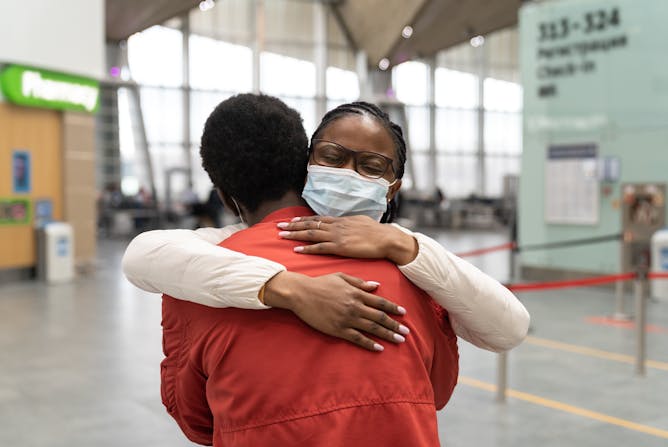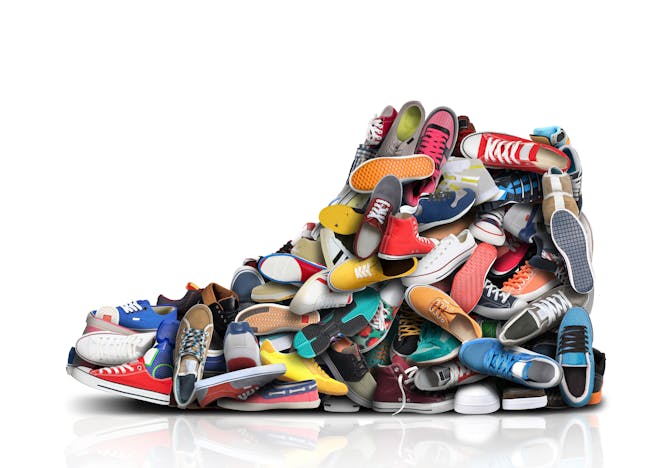|
|
|
|
This week is a big one for much of the UK: in most places, people can now go inside their favourite pub once again, head to the cinema to see a film, and even travel overseas to select green-list locations. But, perhaps most exciting of all, is that the effective ban on hugs has finally been lifted.
While Prime Minister Boris Johnson still asks people to exercise caution, especially given rising concern about new coronavirus variant B16172, many people have waited months for the chance to finally give friends and loved ones a cuddle. And no wonder – as hugs actually play an important role in helping us maintain social bonds. Not only have humans evolved special “cuddle nerves” that are the reason hugs feel so good, hugs actually have a number of surprising health benefits.
This easing of physical distancing rules has also led to predictions that the UK could be heading straight into a “summer of love” filled with abandon, romance – and a flurry of sexual activity. But as one expert writes, that might not actually be the case. Months of lockdown have left many feeling nervous about going back to “normal” – while others might actually prefer the style of “slow dating” that has emerged in lockdown.
Elsewhere, we strap on our sneakers and learn about how they’ve gone from part of our gym kit to an essential piece of fashion. And, we look to the glaciers of Greenland to learn about how the microbes inside them might shape global climate.
If you’ve valued the work of The Conversation during lockdown and would like us to continue bringing you expert analysis in the next stage of the pandemic, please consider making a donation. Any amount, whether as a monthly donation or a one-off gift, provides crucial resources to support our public interest journalism.
Donate now
|
Heather Kroeker
Commissioning Editor, Health + Medicine
|

|
|

Our sense of touch is important for creating and maintaining social bonds.
DimaBerlin/ Shutterstock
Francis McGlone, Liverpool John Moores University; Susannah Walker, Liverpool John Moores University
Touch is the first sense to develop in the womb.
|

Dean Drobot/Shutterstock
Viren Swami, Anglia Ruskin University
Predictions of a new 'roaring twenties' featuring hedonism and indulgence ignores how dating has changed during lockdown.
|

Sneakers have become highly covetable collectors’ items.
Zarya Maxim Alexandrovich/ Shutterstock
Naomi Braithwaite, Nottingham Trent University
As sneakers have gone from sportswear to fashion item, the market for the shoe has exploded.
|

Saiko3p/Shutterstock
Jemma Wadham, University of Bristol
Glaciers aren't sterile wastelands – they're chock-full of microscopic life.
|
Politics + Society
|
-
John Strawson, University of East London
Benjamin Netanyahu, is the latest in a line of Israeli prime ministers who have not engaged with the idea of Palestinian self-determination.
-
Simon Mabon, Lancaster University
The Abraham Accords peace deal was supposed to herald a new era for the Middle East. Yet the fault-lines remain as deep as ever.
-
Kerstin Enflo, Lund University; Jakob Molinder, Lund University; Tobias Karlsson, Lund University
Sweden electrified at the turn of the 20th century, leading to over 8,000 work stoppages – but the strikers were no Luddites.
|
|
Health + Medicine
|
-
Tara Hurst, Birmingham City University
Reports of fully vaccinated people getting infected with coronavirus shouldn't cause alarm.
-
Utkarsh Agrawal, University of St Andrews
Research has shown that vaccines have reduced infections, disease and hospitalisations – but will they continue to do so in the face of new variants?
|
|
Science + Technology
|
-
Lilian Lieber, Queen's University Belfast; Alex Nimmo Smith, University of Plymouth; Roland Langrock, Bielefeld University
We used drones to track the way terns forage around offshore energy structures.
-
Michael J. Armstrong, Brock University
Improved rocket technology and tactics have made the ongoing Gaza-Israel conflict different from the one in 2014. Israel’s defences have been stressed.
|
|
Arts + Culture
|
-
Neel Bhatt, University of Washington
If you've ever cringed after hearing a recording of yourself, you're not alone.
-
Tyina Steptoe, University of Arizona
Released at the height of the Vietnam War, Marvin Gaye's hit-heavy album explored themes of race, environmentalism and conflict. It also marked a new direction for the Motown record label..
|
|
Business + Economy
|
-
Shamel Azmeh, University of Manchester
The huge shift towards more digital working and trading are a fundamental challenge to the way countries agreed to interact with each other.
|
|
| |
Featured events
|

|
Online, Birmingham, Warwickshire, B15 2TT, United Kingdom of Great Britain and Northern Ireland — University of Birmingham
|

|
Sustainable Places Research Institute, Cardiff University, Cardiff, Cardiff [Caerdydd GB-CRD], CF10 3BA, United Kingdom of Great Britain and Northern Ireland — Cardiff University
|

|
Online Oxford Martin School Event, Online, Oxfordshire, N/A, United Kingdom of Great Britain and Northern Ireland — University of Oxford
|

|
Online, Birmingham, Warwickshire, B15 2TT, United Kingdom of Great Britain and Northern Ireland — University of Birmingham
|
|
|
|
| |
| |
| |
| |
| |
|
|
|
|
|
|
|